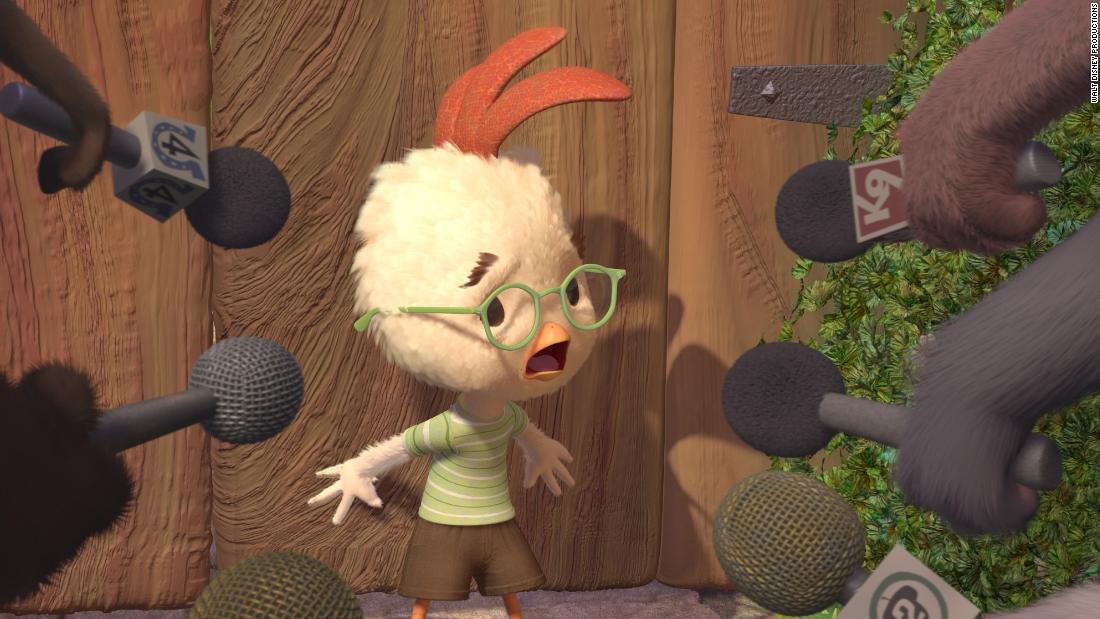
This is not a movie. Or a drill.
But do not worry. Apparently we have this. Or at least NASA does.
It’s admirable, but somehow it kind of deflates after decades of what I call “Chicken Little” movies, where humanity is threatened from above by a cosmic mess that can’t be reasoned with. only by drastic means.
You know the routine. Someone finds unmistakable evidence of a) an asteroid, b) a meteor, c) a comet, d) a rogue moon, or e) an entire planet closing in on us. Who believes these warnings? Exactly no one, until the sky was riddled with fast-moving debris slithering and tugging at the impending object. Then we a) panic, b) submit, or c) send some of our own humans up there to save us all.
Their findings initially sparked disbelief and even ridicule from the government and the media. But once the inevitability sets in, the world at large and the United States in particular engages in crisis as it seems to engage in everything else in the 21st century: narcissism, denial, and blaming all bad people. It’s enough to make you think the world as we know it has already ended before it does.
In 1998, multiplexes had not one, but two big “Chicken Little” blockbusters: Michael Bay’s “Armageddon” and Mimi Leder’s “Deep Impact.”
The first, whose threat was an asteroid the size of Texas, was a crowded, explosive action-thriller, undulating with broad humor and even broader settings with barely enough time for audience members to catch their breath. breath.
This last film, whose threat was, as with “Don’t Look Up”, a comet, was a more serious, carefully assembled and much less troubled variation on this theme.
“Armageddon” manages the danger by setting up a few space shuttles (remember those?) with oil drilling crews, the most crack of which is Bruce Willis, neck-deep in John Wayne mode, as Harry Stamper. His motley support comes from, among others, Billy Bob Thornton (by far the coolest cat in the room as a NASA executive), Steve Buscemi, Will Patton, Michael Clarke Duncan, William Fichtner, Peter Stormare (tubular as the only guy left on a Russian space station), Ben Affleck (who is dating Willis’ daughter to Dad’s violent annoyance), and Liv Tyler (the daughter).
The complications and idiosyncrasies of these and other characters swirl around long enough to make us forget to watch parts of Manhattan and all of Paris being leveled by bits of the asteroid.
The central character of ‘Deep Impact’ is an investigative TV reporter (Téa Leoni), who thinks she’s caught a cabinet member in a sex scandal, only to discover the US president (Morgan Freeman, of course) is on the hook. point to announce that the aforementioned comet is on a year-long collision course with Earth. They try everything, including a space shuttle commanded by Robert Duvall loaded with nuclear bombs, to deflect the trajectory of the comet.
So, in what version of impending extinction can we continue our lives? That would spoil things for those who haven’t seen either film. All we feel safe divulging is that the science in “Deep Impact” is far more reliable and trustworthy than in “Armageddon.” Or for that matter in “Don’t Look Up”. Draw your own conclusions.
By the way, I bet you’re wondering if a “Chicken Little” feature film has ever been made. There was of course a digital animated film released in 2005 by Disney (without Pixar). This version begins with the main character being crushed over the head by what he thinks is a piece of heaven. After panic sets in all around, the “piece of heaven” is identified as an acorn, making Chicken Little a laughing stock for months until he finds unexpected redemption in another, more ominous piece of an alien spaceship. All I will say here is that it looks a lot more interesting than the movie did.
If the actual DART is successful in its mission, we may be able to relax more when asteroids start to approach too close. But that doesn’t necessarily mean the movies will abandon “Chicken Little” themes altogether.
After all, the reason the original “The Sky is Falling!” The phrase passed down from generation to generation is that at some point, history revolves around whether we earthlings believe or, worse, care about impending doom.
Gene Seymour is a critic who has written about music, movies and culture for The New York Times, Newsday, Entertainment Weekly and The Washington Post. Follow him on Twitter @Gene Seymour.